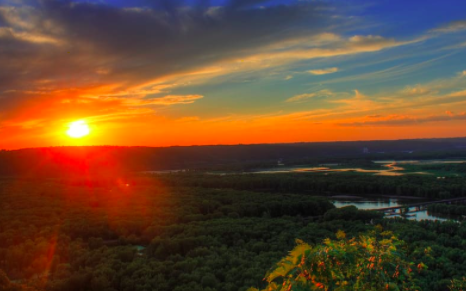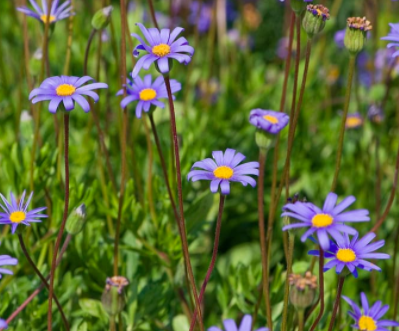Looking for ways to help the environment? Keep a
lookout for my new book!
*Scroll down to the bottom of the Action for the Environment page to find information about my upcoming book! Discounts, purchasing information, and selling date for the book is not yet posted. Still, stay tuned!
Good Environmental vocabulary to learn
These are 92 very essential environmental terms that everybody should know. These terms are used all the time whether it be the news, this website, a book, a teacher, or even a weatherman. More information on learning resources down below.
* Courtesy of Chiyo N.
* Courtesy of Chiyo N.
UEFAP Environmental science List |
|
- biome: major ecological community with distinct climate and flora
- chlorofluorocarbon: a fluorocarbon with chlorine
- subtropic: of or relating to or characteristic of conditions in the subtropics
- subtropics: regions adjacent to the tropics
- oxidise: enter into a combination with oxygen or become converted into an oxide
- deforest: remove the trees from
- cultivar: a variety of a plant developed from a natural species and maintained under cultivation
- nitrogen- fixing contributing to the process of nitrogen fixation
- wetland: a low area where the land is saturated with water
- photochemical: of or relating to or produced by the effects of light on chemical systems
- oxidised: combined with or having undergone a chemical reaction with oxygen
- troposphere: the lowest atmospheric layer; from 4 to 11 miles high
- rainforest: a densely wooded tropical area with heavy precipitation
- climatologist: someone who is expert in climatology
- agronomist: an expert in soil management and field-crop production
- acidification: the process of becoming acid or being converted into an acid
- polluter: a person or organization that causes pollution of the environment
- emitter: the electrode in a transistor where electrons originate
- pollutant: waste matter that contaminates the water, air, or soil
- aquaculture: raising fish or shellfish or growing water plants for food
- emission: the act of causing to flow forth
- methane: a colorless odorless gas used as a fuel
- anaerobic: not using or dependent on oxygen
- recyclable: capable of being used again
- biosphere: the regions of the Earth where living organisms exist
- sequester: keep away from others
- ecologically: with respect to ecology
- photosynthesis: formation of compounds in plants aided by radiant energy
- ecologist: a biologist who studies organisms and their environment
- deplete: use up, as resources or materials
- permafrost: ground that is permanently frozen
- dioxin: any of several toxic or carcinogenic hydrocarbons that occur as impurities in herbicides
- nitrification: the chemical process in which a nitro group is added to an organic compound (or substituted for another group in an organic compound)
- farmland: a rural area where farming is practiced
- biomass: the total amount of living matter in a given unit area
- grassland: land where grass or grasslike vegetation grows and is the dominant form of plant life
- ecosystem: organisms interacting with their physical environment
- ozone: a colorless gas that is a screen for ultraviolet radiation
- pesticide: a chemical used to kill destructive insects or animals
- amenity: pleasantness resulting from agreeable conditions
- cultivator: a farm implement used to break up the surface of the soil
- degrade: reduce in worth or character, usually verbally
- hydrocarbon: an organic compound containing only carbon and hydrogen
- subtropical: of or relating to or characteristic of conditions in the subtropics
- stratosphere: atmospheric layer between the troposphere and the mesosphere
- emit: give off, send forth, or discharge
- inhibit: limit the range or extent of
- ecology: the environment as it relates to living organisms
- depletion: the state of being used up
- deciduous: shedding foliage at the end of the growing season
- nitrous: of or containing nitrogen
- nitrogenous: of or relating to or containing nitrogen
- ecological: characterized by the interdependence of living organisms
- mapping: (mathematics) a mathematical relation such that each element of a given set (the domain of the function) is associated with an element of another set (the range of the function)
- geographically: with respect to geography
- sensing: becoming aware of something via the senses
- oxide: any compound of oxygen with another element or a radical
- oxidation: the process by which a substance combines with oxygen
- dweller: a person who inhabits a particular place
- greenhouse: a building with glass walls and roof
- carbon: an abundant nonmetallic element in all organic compounds
- chlorine: a common nonmetallic element belonging to the halogens
- airborne: moved or conveyed by or through air
- climatic: of or relating to weather in some location over time
- meteorological: of or pertaining to atmospheric phenomena, especially weather and weather condition.
- nitric: of or containing nitrogen
- nitrogen: a common nonmetallic element that is normally a colorless odorless tasteless inert diatomic gas; constitutes 78 percent of the atmosphere by volume; a constituent of all living tissues
- sediment: matter that has been deposited by some natural process
- agrarian: relating to rural matters
- estuary: the wide part of a river where it nears the sea
- amenities: things that make you comfortable and at ease
- botanist: a biologist specializing in the study of plants
- forestry: the science of developing and caring for wooded areas
- nitrate: any compound containing the nitrate group
- desertification: a gradual transformation into arid, uninhabitable land
- biodiversity: the variety of plant and animal life in a habitat
- tropic: either of two parallels of latitude about 23.5 degrees to the north and south of the equator representing the points farthest north and south at which the sun can shine directly overhead and constituting the boundaries of the Torrid Zone or tropics
- sustainable: capable of being prolonged
- tropical: relating to part of the Earth's surface with hot climate
- dam: a barrier constructed to contain the flow of water
- biology: the science that studies living organisms
- bacteria: single-celled organisms that can cause disease
- delegate: a person appointed or elected to represent others
- conservation: careful management of the environment and natural resources
- subsistence: a means of surviving
- degradation: a change to a lower state
- populace: people in general considered as a whole
- vegetation: the process of growth in plants
- urban: relating to a city or densely populated area
- democratic: based upon the principles of social equality
- affluence: relates to the average consumption of each person in the population.
*It is sometimes helpful to know Latin roots when it comes to environmental vocabulary. For example, the root bio- can be associated with "living" (biomass, biology, biomagnification, etc).
Courtesy of Hot Mess
Interested in studying or learning more about the environment? Studying environmental related fields for high school, college, or even your job?
Here are some resources that I found amazing for studying the environment. *Please note that these resources are not the only ones available, they are just my top preferences.
Links on Google :
https://globalecoguy.org/learning-the-lessons-of-the-planet-54fa11d5abc9
https://www.sciencedaily.com/news/earth_climate/environmental_issues/
https://www.open.edu/openlearn/nature-environment (Includes courses)
National Geographic is also a resource I highly recommend. If you are willing to spend some money to get educated from well-known professors try the Great Courses, https://www.thegreatcourses.com/
Books:
Silent Spring by Rachel Carson
The End of Nature by Bill McKibben
Last Child in the Woods by Richard Louv
How to Avoid a Climate Disaster by Bill Gates (my personal favorite)
*Be sure to also check out 111 Ways to Save the Environment which has been published through Canva® and Amazon KDP®
YouTube has numerous resources and I personally like it as there is lots of variety.
You can find almost any topic(s) that you want on YouTube.
Have a professor, instructor, or teacher? Ask them. They are some of the most knowledgeable resources that you can have.
The Zoom webinars are a great way to see other peoples' opinions on various environmental topics. Different people have different viewpoints and they are also crucial to consider. If we are to save the environment it will not only take me, it will take all of you to contribute also.



